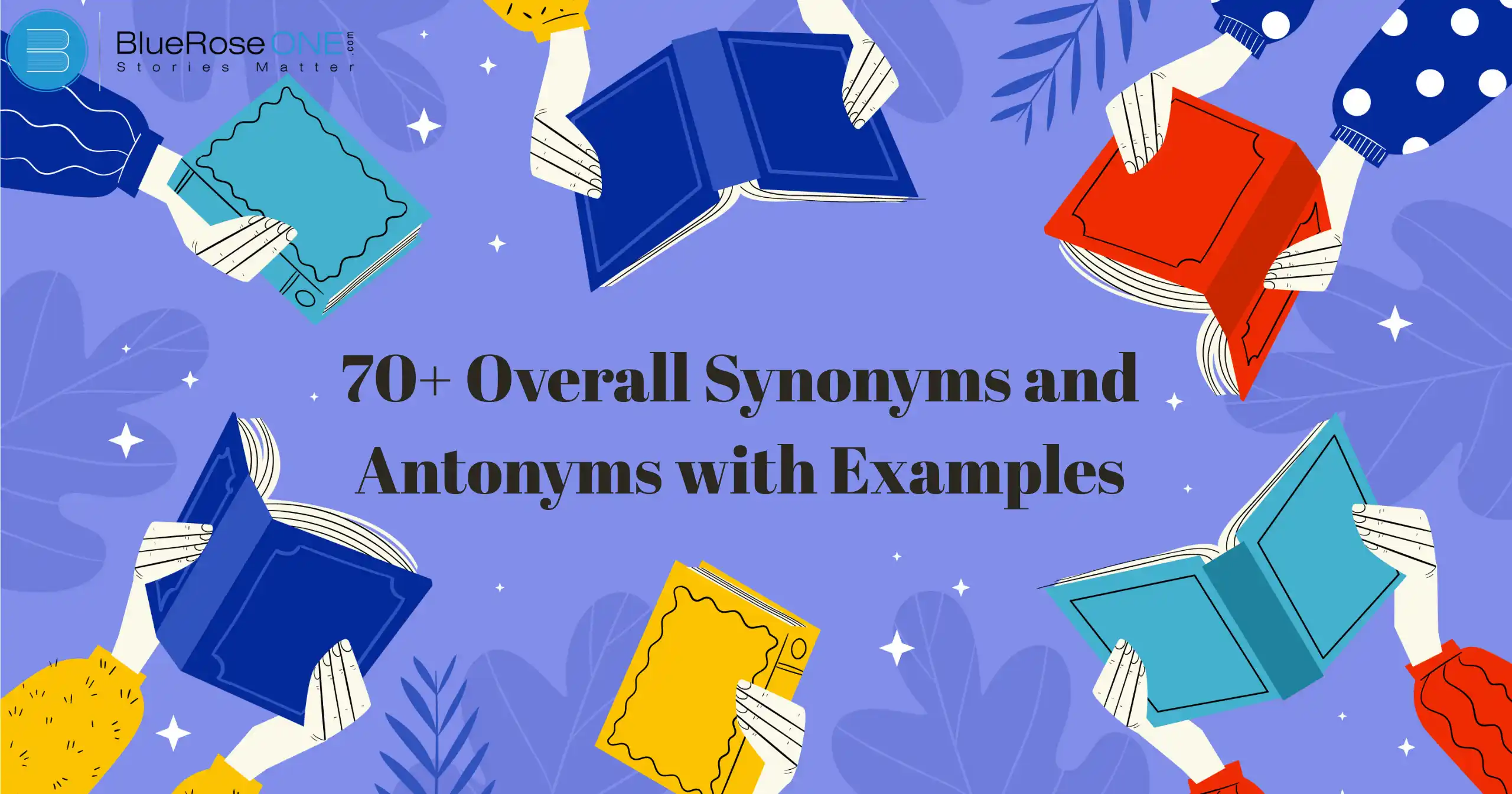The word overall is commonly used in everyday English to summarize or give a broad perspective. But if you use the same word repeatedly, your writing may sound dull. That’s where synonyms and antonyms come in handy. In this guide, we’ll explore more than 70 overall synonyms and antonyms overall, along with examples to help you use them effectively.
Why Learn Synonyms and Antonyms of "Overall"?
- Expand Vocabulary – Knowing alternatives makes your language richer.
- Enhance Writing Style – Replacing repetitive words keeps writing fresh.
- Avoid Repetition – Synonyms help express the same idea differently.
You may also read: How “You Can Heal Your Life” Changes Everything
Synonyms of Overall
Common Synonyms of "Overall"
- General – The general opinion was positive.
- Total – The total cost exceeded our budget.
- Entire – The entire project was completed on time.
- Whole – The whole class agreed with the decision.
Advanced Synonyms of "Overall"
- Comprehensive – She gave a comprehensive review of the topic.
- All-inclusive – The package offered an all-inclusive price.
- Global – The issue has a global impact.
- Sweeping – The reform had sweeping changes across the system.
Antonyms of Overall
Common Antonyms of "Overall"
- Partial – He gave only a partial explanation.
- Limited – The study had limited scope.
- Specific – The teacher asked for a specific answer.
Advanced Antonyms of "Overall"
- Restricted – The restricted area was off-limits.
- Incomplete – The report felt incomplete without data.
- Narrow – They had a narrow focus on one issu
You may also read: Jocko Willink Books Ranked from Best to Worst
Detailed List of 70+ Synonyms and Antonyms
Synonyms of Overall with Examples
| Synonym | Example Sentence |
|---|---|
| General | The general outcome was satisfying. |
| Entire | The entire journey was thrilling. |
| Total | The total expenses shocked us. |
| Whole | The whole plan worked perfectly. |
| All-inclusive | The resort provides all-inclusive deals. |
| Comprehensive | She prepared a comprehensive guide. |
| Sweeping | The sweeping reforms changed the law. |
| Global | The global view was essential. |
| Complete | His complete knowledge impressed everyone. |
| Universal | The idea has universal acceptance. |
| Broad | He gave a broad perspective. |
| Overall view | The overall view was optimistic. |
| Aggregate | The aggregate score was high. |
| Entirety | The entirety of the play was engaging. |
| Collectively | Collectively, they worked hard. |
| Totality | The totality of evidence was undeniable. |
| Inclusive | The policy is inclusive of all needs. |
| Full-scale | A full-scale investigation was launched. |
| Holistic | They took a holistic approach. |
| Outright | He gave outright support. |
Antonyms of Overall with Examples
| Antonym | Example Sentence |
|---|---|
| Partial | The partial answer wasn’t enough. |
| Limited | His knowledge was limited. |
| Specific | She asked for a specific detail. |
| Restricted | Entry was restricted to staff. |
| Narrow | The narrow view missed key points. |
| Incomplete | The incomplete project caused delays. |
| Exclusive | The exclusive group met privately. |
| Fragmented | His fragmented ideas lacked clarity. |
| Tiny scope | The study had a tiny scope. |
| Localized | The damage was localized to one area. |
Using Synonyms and Antonyms in Sentences
Formal Contexts
- The comprehensive report showed positive results.
- The limited evidence was not enough to convict.
Informal Contexts
- Overall, the party was fun.
- Her explanation was too narrow to understand.
Academic Writing
- The aggregate data revealed consistent patterns.
- The fragmented results weakened the argument.
Creative Writing
- She saw the world in its entirety.
- His narrow view blinded him to the truth.
You may also like: Top Cozy Fantasy Books Every Bookworm Will Love
Tips to Remember Synonyms and Antonyms
- Word Associations – Link new words with familiar ones.
- Flashcards – Write synonyms and antonyms on cards for quick revision.
- Practice in Sentences – Use them in daily writing.
Final Thoughts
The word overall is versatile and widely used, but having synonyms and antonyms at your fingertips gives you the power to communicate with precision. Whether in casual conversation, academic writing, or storytelling, using alternatives can make your language more engaging and impactful.
Frequently asked questions
General or comprehensive are the most commonly used.
Yes, in most cases, they can replace each other.
Words like partial or limited serve as opposites.
They prevent repetition and enrich your vocabulary.
By writing short sentences and replacing common words with alternatives.















